Benefits Of Vodka For Health, Nutrition Facts, And Risks
One more reason to take another sip of your favorite party drink!
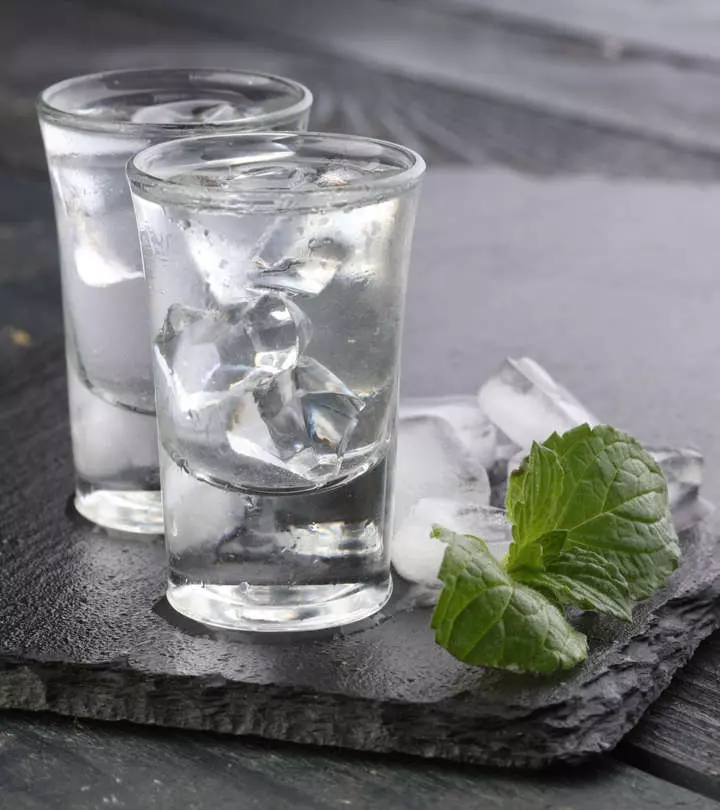
Image: shutterstock
Vodka is popularly known as a ladies’ drink. It is made with water and ethanol. Some believe in the important health benefits of vodka, despite it being an alcoholic beverage. Vodka is often mixed with many sugary beverages, and is known for its unique sweet taste. But, scientifically, is vodka good for health? What are these vodka benefits that we keep hearing about? Keep reading to know more.
 Know Your Ingredient: Vodka
Know Your Ingredient: VodkaWhat Is It?
An distilled alcoholic beverage comprising mainly water and ethanol.
What Are Its Benefits?
When consumed in limited quantities, it may help ease a sore throat, increase insulin sensitivity, alleviate toothache, manage skin inflammation, and improve hair health.
Who Can Use It?
Can be consumed by adults of legal age.
How Often?
Occasionally, in moderate quantities.
Caution
Excessive consumption can have an immense negative impact on health, especialy liver health, leadind to addiction and cirrhosis.
In This Article
Origin Of Vodka
Vodka is thought to have originated either in 9th century Poland or in Russia and Eastern Europe a thousand years ago. The first vodka was made from wheat and rye using fermentationi The metabolic process in which enzymes present in microorganisms breaks down sugars to release acids, gasses, or alcohol. and distillationi Process of obtaining a certain substance in its purest form by heating and subsequent cooling at specific temperatures. .
 Trivia
TriviaKey Takeaways
- Vodka can help manage mild colds, reduce acne breakouts, minimize toothache, manage hair loss, and have cardioprotective properties.
- According to the CDC, the safe limit of vodka intake is 1 glass or less per day for women and 2 glasses or less per day for men.
- Excessive vodka consumption may increase cholesterol levels as well as triglycerides (the form in which cholesterol is stored), have harmful effects on the liver, and increase blood pressure.
Vodka Nutrition Facts
According to the U.S. Department of Agriculture, 1 fl oz. (27.8 g) of vodka contains the following components (1):
- Calories: 64.2
- Ethyl Alcohol: 9.28 g
- Water: 18.5 g
- Sugars: 0
- Dietary Fiber: 0
 Trivia
TriviaWhether vodka has health benefits is a topic of debate. Continue reading to know more.
Potential Health Benefits Of Vodka
1. It May Help Manage Cold

Anecdotal evidence suggests that vodka or its cocktail may help manage mild cold and nasal congestion. It is also believed to help ease a sore throat and other general symptoms associated with cold. However, there is no scientific research to support this claim. Caution is advised if you are using this remedy for treating cold or associated symptoms. There is very little probability that any alcohol taken will successfully fight a cold or flu since it doesn’t come into close contact with the virus. So, vodka cannot be substituted for medical treatment or advice.
2. May Have Cardioprotective Effects
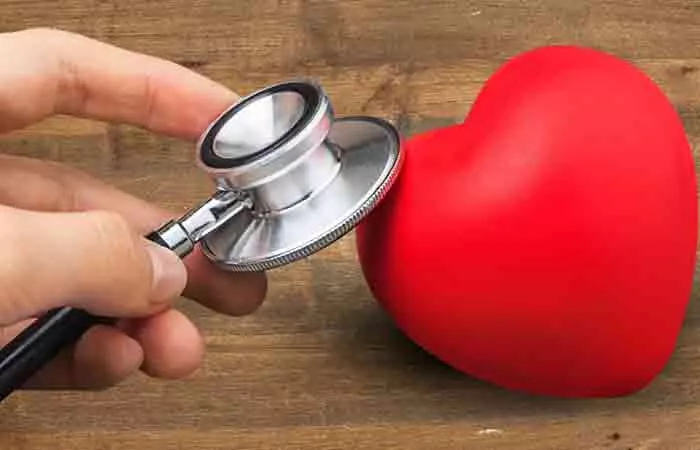
Animal studies have shown that moderate consumption of vodka may have a cardioprotective effect (2). However, excess intake may have undesirable effects. Also, similar studies on humans are limited.
Vodka lowers insulin resistancei The body cells fail to respond to insulin and prevent the breakdown of glucose in the blood, eventually leading to type 2 diabetes. while increasing insulin sensitivity. Regular moderate vodka intake is related to lower insulin resistance, which may explain some of the cardioprotective effects of alcohol.
3. May Help Minimize Toothache

It helps in pain relaxation. Vodka’s alcohol content is believed to act as a pain-relieving agent by causing numbness since it contains anti-inflammatory properties. However, this claim is not backed by scientific evidence.
Many follow the simple technique of soaking a cotton ball in vodka and placing it over the painful tooth. However, exercise caution as one may also experience mild irritation on the applied area.
4. May Help Manage Acne

Vodka is thought to minimize acne and breakouts by acting as an astringent or a toner. Many use it by diluting with equal parts of water and applying it to the affected area with a cotton ball. However, keep in mind that alcohol may have a dehydrating effect on the skin. Practice caution and consult a dermatologist. With its dehydrating and purifying effects, it can also help tighten your skin and may manage acne outbreaks.
5. May Help Manage Hair Loss

There are many anecdotal reports claiming the benefits of using Vodka for hair care. In some home hacks, Vodka is generally mixed with organic honey and lemon juice, applied to the hair, and left on for 30 minutes. It is then rinsed with a good-quality hair cleanser. This is thought to help manage dandruff and an itchy, greasy scalp.
On the flip side, vodka also may cause mild scalp irritation in a few individuals. Hence, perform a patch test before applying the whole mixture to your hair/scalp. You can also use vodka to condition your hair, eliminate frizz, and boost shine after completing the patch test.
Myth Buster
| Myth: | Fact: |
|---|---|
| Vodka helps in treating arthritis | Vodka does not help in treating arthritis. In fact, it may aggravate arthritis. Research shows that alcohol consumption increases the risk and severity of rheumatoid arthritis (3). |
These purported health benefits are yet to be validated by the scientific community. That said, vodka has other important advantages and uses. Let us explore them in the next section.
Uses Of Vodka
1. As A Disinfectant
Many use diluted vodka as a disinfectant. This may be attributed to its alcoholic content. Vodka is generally mixed with equal parts of water and is sprayed on surfaces to disinfect them. This disinfecting property can be attributed to its alcohol content. Alcohol has been shown to be an effective disinfectant (4).
2. As A Pedicure
Vodka is used in pedicures. It is mixed with lemon juice, sliced lemons, and warm water and used as a foot soak. This mixture is believed to deeply cleanse the skin and remove the deposited dirt and tan due to its high molecular weight. The result is potentially increased skin emollience. However, research is limited in this regard.
 Did You Know?
Did You Know?3. As A Mouthwash
Many use vodka as a mouthwash. Diluted vodka is squished for 3 to 4 minutes in the mouth. This is believed to help manage bad breath. However, caution is advised as squishing vodka may also cause mild irritation in some individuals.
You may exercise caution and still consume vodka to understand its benefits. However, moderation is key. How much vodka is safe to drink?
How Much Vodka Is Safe To Drink
As per recommendations by the Centers for Disease Control and Prevention, the safe limit of alcohol intake is 1 glass or less per day for women and 2 glasses or less per day for men (5). However, you should always try to minimize alcohol consumption as it can exert negative effects on your health. We have discussed the risks associated with vodka intake.
Risks Associated With Vodka Consumption
1. May Increase Cholesterol Levels
Anecdotal evidence suggests that regular consumption of vodka may increase levels of triglycerides and cholesterol. This effect can be more pronounced in those consuming excess vodka regularly. Studies have shown that excessive alcohol consumption, such as vodka, especially coupled with a high-fat diet, can increase triglycerides (6).
2. May Cause Liver Damage
Regular alcohol consumption may have harmful effects on the liver. Studies show that a daily intake of 30 to 50 grams of alcohol over a period of five years can cause liver disease (7). Additionally, this enjoyment drink may also cause the deposition of fat in the liver and lead to liver cirrhosisi A chronic liver condition characterized by permanent damage of the liver tissues and caused due to hepatitis or alcohol abuse. .
3. May Increase Blood Pressure
Research shows that alcohol consumption can elevate blood pressure levels (7). Even moderate consumption is thought to elevate blood pressure levels over time.
According to cross-sectional data from the Health Information National Trends Survey (HINTS) conducted by the National Cancer Institute (NCI) on 3865 participants, collected during 2020, alcohol consumption had a negative effect on physical health (8). As per the data, frequent alcohol consumption had a negative effect on physical health with a hazard ratio of -0.13 (P
Infographic: 5 Health Benefits Of Vodka
While vodka is often associated with cocktails and parties, it has a long history of use for various health-related purposes. The infographic below reveals how vodka can be used beyond the bar to work its magic in unexpected ways. Scroll down to check it out and see why you should keep a bottle of this spirit handy.

Illustration: StyleCraze Design Team
Vodka is good for health when consumed in moderate amounts. This liquor is a mixture of water and ethanol and is popularly known as a ladies’ drink. Vodka may effectively manage a cold, exhibit a cardioprotective effect, help manage toothache, act as an astringent or toner, and treat acne. It also helps manage hair loss when mixed with honey and lemon juice. However, if consumed in excess amounts, it may cause liver damage and increase cholesterol and blood pressure levels. Therefore, moderate consumption is advised to reap its benefits.
Frequently Asked Questions
Does vodka help you sleep?
Regular and excess consumption of alcohol, especially at night, can disrupt sleep quality and pattern (9). Hence, vodka is not a good option to help you fall asleep.
Which is better, vodka or whiskey?
When compared with whiskey, vodka has fewer calories and no fat, carb, and sugar values. Also, vodka is considered a clean drink with no impurities, while whiskey contains several mixtures that make it less healthy than vodka.
Which is better for you, wine or vodka?
Vodka is free of impurities, has fewer calories and sugar, and contains 60 percent of water. This makes vodka a healthier choice than wine.
Is beer better than vodka?
No. Beer has a high calorific value than vodka (which contains fewer calories due to the distillation process), and it can trigger weight gain.
Is vodka good for the stomach?
Drinking too much alcohol may irritate the digestive system. It can damage the stomach over time, but the intake of vodka in moderation may enhance digestion. However, limited data is available in this regard.
Will vodka cause belly fat?
Vodka is less in calories but taking it in excess may cause belly fat. (Note: It will take longer for the calories (in vodka) to cause a beer belly, but it is possible.)
Is gin healthier than vodka?
Gin has slightly more calories than vodka. If we consider their calorific values, vodka is a healthier option than gin.
Does vodka cause inflammation?
Generally, a small amount of vodka or any alcohol is unlikely to provoke inflammation. However, excessive alcohol intake may lead to inflammation in various organs and systems, including the liver and digestive tract (10). Vodka, like other alcoholic beverages, may contribute to inflammation when consumed in excess or if you have an underlying health issue. Chronic inflammation can have detrimental effects on your health. It is crucial to drink alcohol in moderation, if at all, and consider potential health risks, including inflammation, when making choices about your alcohol consumption. Consult with a healthcare professional if you have concerns about your alcohol consumption and its impact on inflammation.
Can vodka be used in cooking?
Yes. You may use vodka in moderation for cooking. It is commonly used in sauces and marinades to enhance the flavors of dishes.
Illustration: Benefits Of Vodka For Health Nutrition Facts And Risks
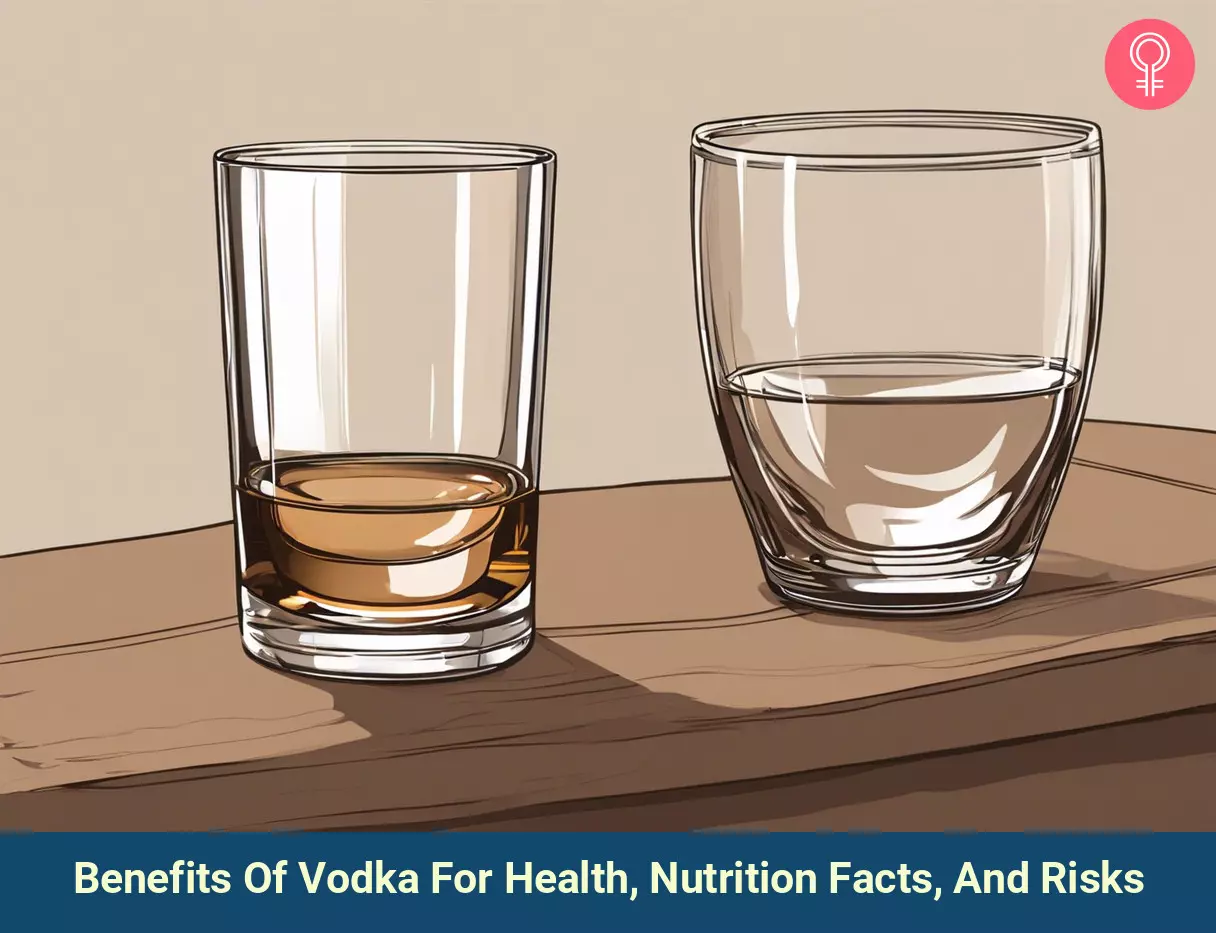
Image: Stable Diffusion/StyleCraze Design Team
Vodka is a fun night out but did you it can be a great addition to your health routine? Watch this video to learn about the five amazing health benefits of drinking vodka!
References
Articles on StyleCraze are backed by verified information from peer-reviewed and academic research papers, reputed organizations, research institutions, and medical associations to ensure accuracy and relevance. Read our editorial policy to learn more.
- Alcoholic beverage, distilled, vodka, 80 proof
https://fdc.nal.usda.gov/fdc-app.html#/food-details/174818/nutrients - Effects of red wine and vodka on collateral-dependent perfusion and cardiovascular function in hypercholesterolemic swine
https://www.ahajournals.org/doi/10.1161/CIRCULATIONAHA.111.082172 - Alcohol consumption is inversely associated with risk and severity of rheumatoid arthritis
https://pubmed.ncbi.nlm.nih.gov/20667949/ - Alcohols as Surface Disinfectants in Healthcare Settings
https://www.cambridge.org/core/journals/infection-control-and-hospital-epidemiology/article/abs/alcohols-as-surface-disinfectants-in-healthcare-settings/65382851361A5EE2921CAF83632CD25E - About Moderate Alcohol Use
https://www.cdc.gov/alcohol/about-alcohol-use/moderate-alcohol-use.html - Alcoholic Liver Disease
https://www.ncbi.nlm.nih.gov/books/NBK546632/#:~:text=Daily%20consumption%20of%2030%20to - Effect of alcohol on blood pressure
https://www.ncbi.nlm.nih.gov/labs/pmc/articles/PMC6483609/#:~:text=Alcohol%20can%20elevate%20blood%20pressure - Consumption of Alcoholic Beverages Associated With Physical Health Status in Adults: Secondary Analysis of the Health Information National Trends Survey Data
https://journals.sagepub.com/doi/10.1177/21501319211066205 - The Effects of Alcohol on Quality of Sleep
https://www.researchgate.net/publication/284904194_The_Effects_of_Alcohol_on_Quality_of_Sleep - Alcohol, inflammation, and gut-liver-brain interactions in tissue damage and disease development
https://www.ncbi.nlm.nih.gov/pmc/articles/PMC2842521/
Read full bio of Nilofar Pendhari
Read full bio of Aparna Mallampalli
Read full bio of Ravi Teja Tadimalla
Read full bio of Payal Karnik





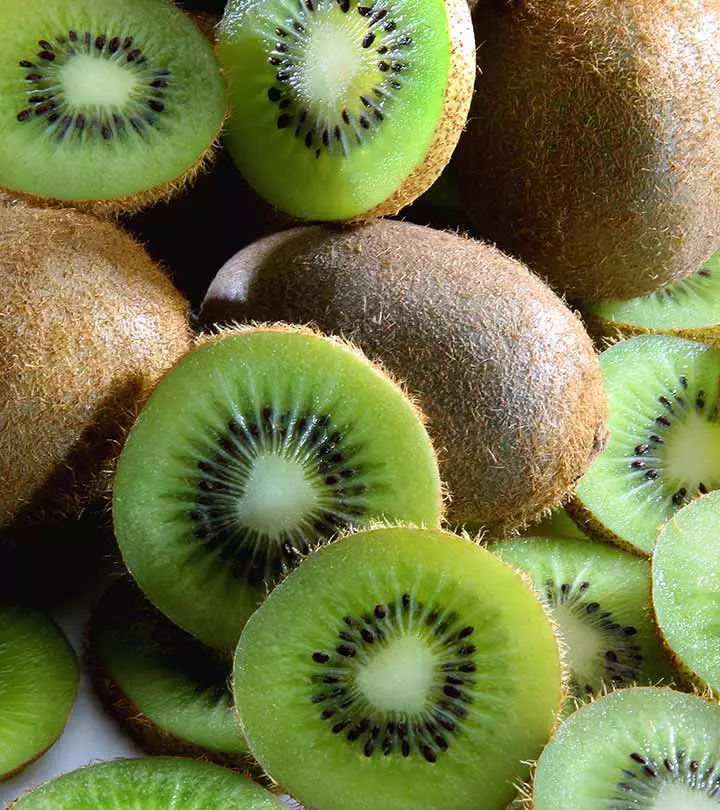




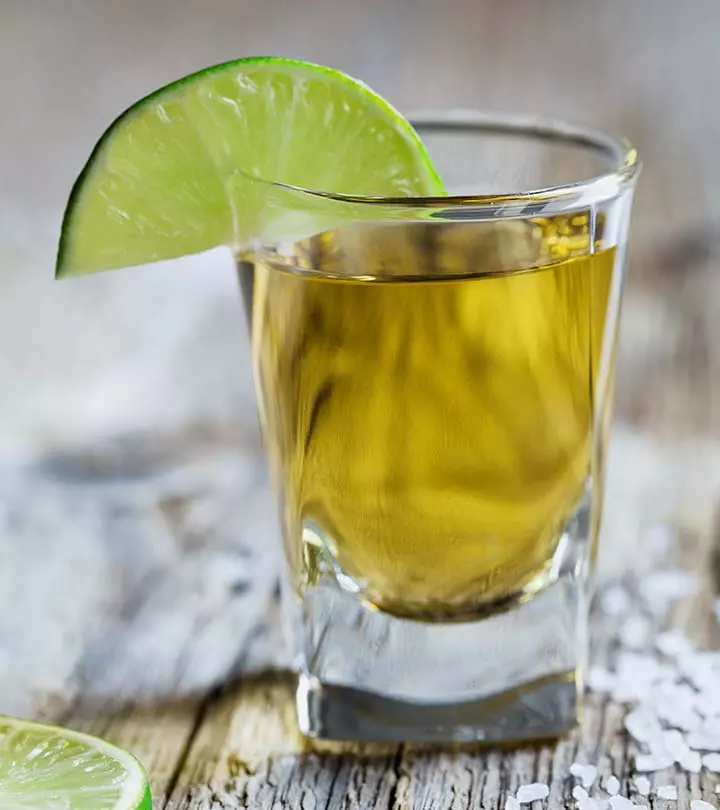

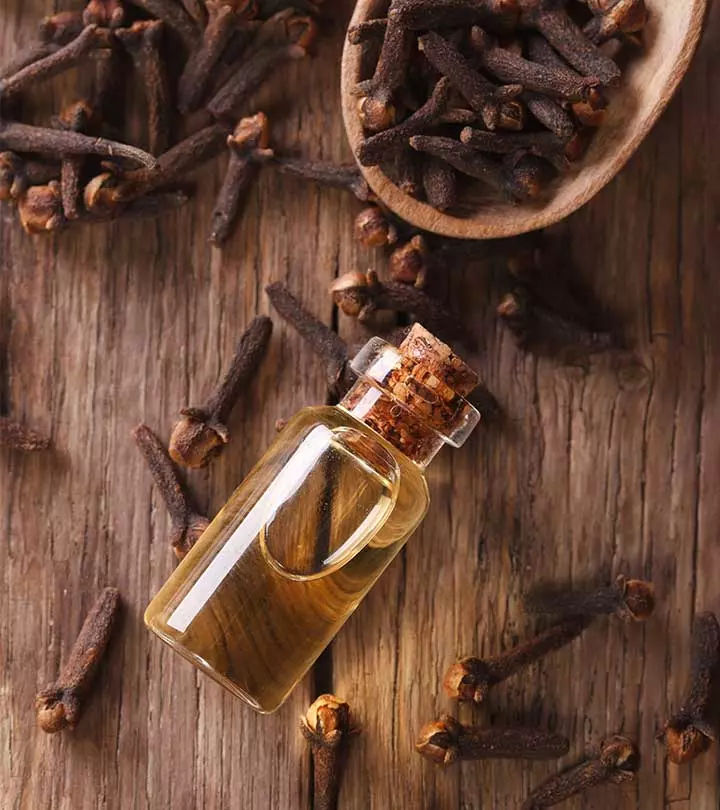


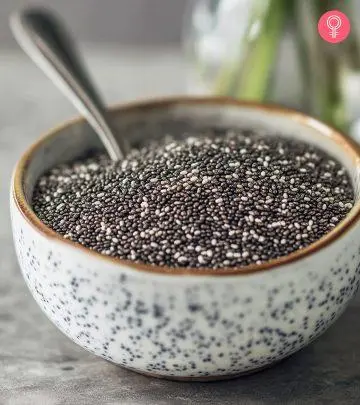
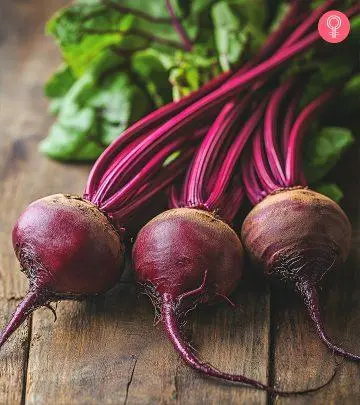
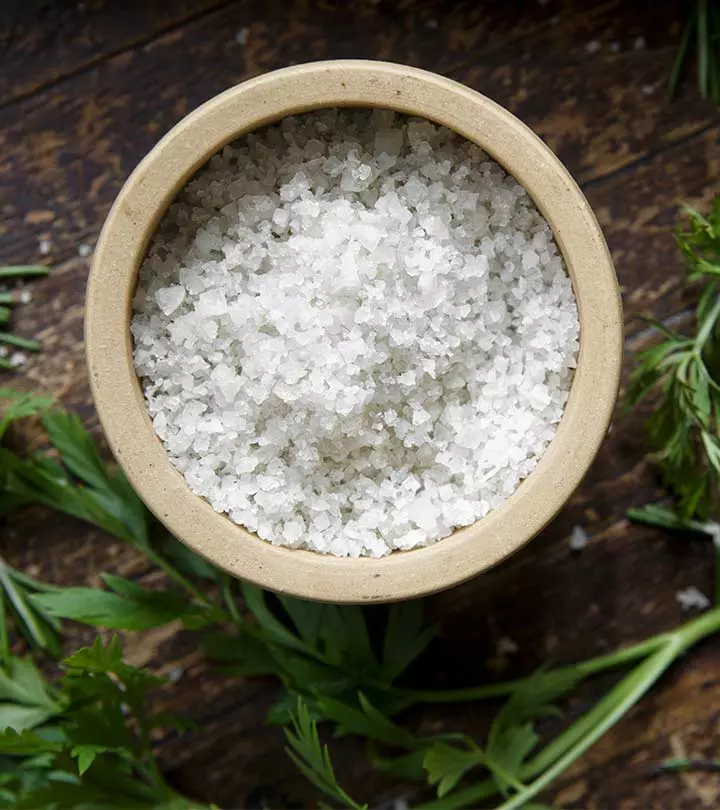



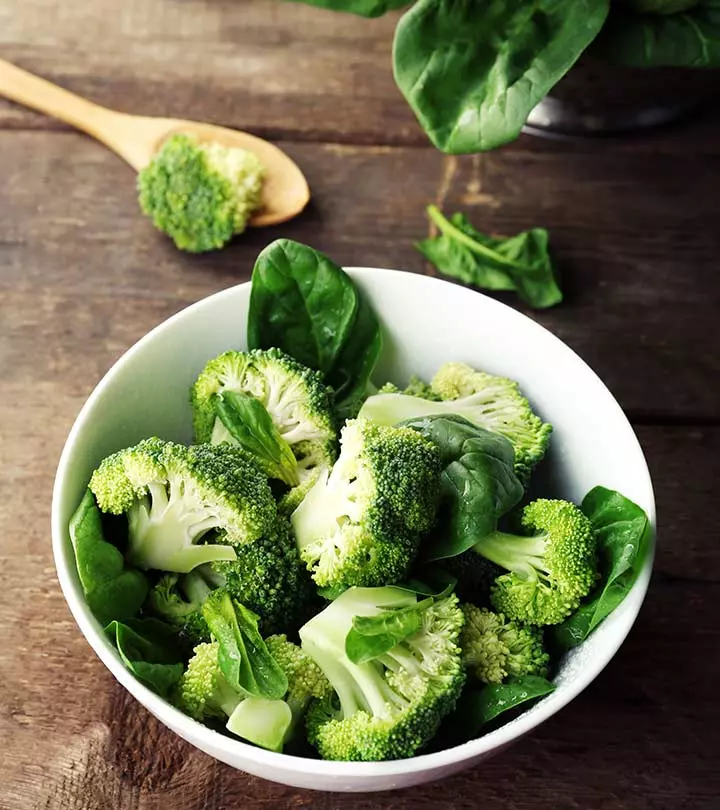
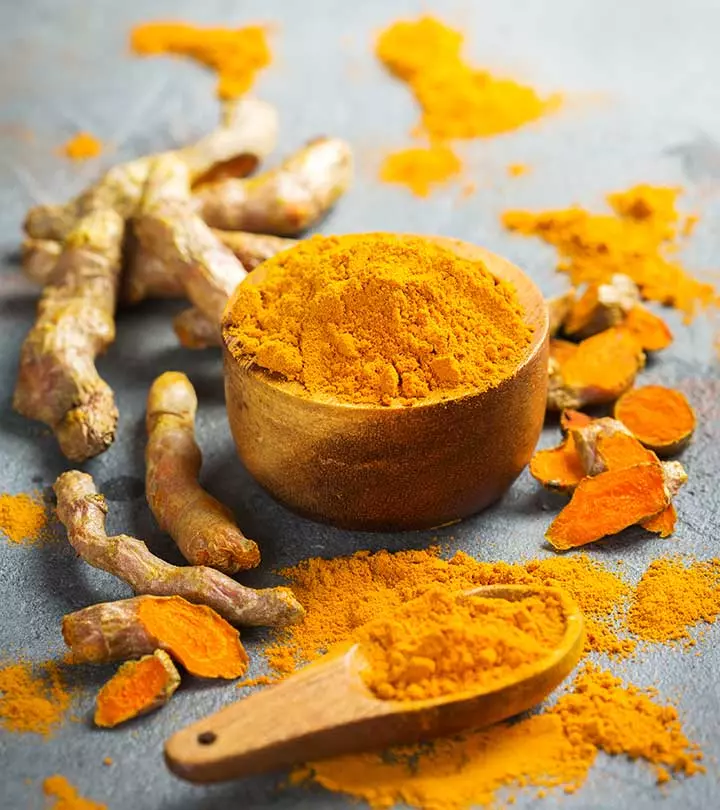

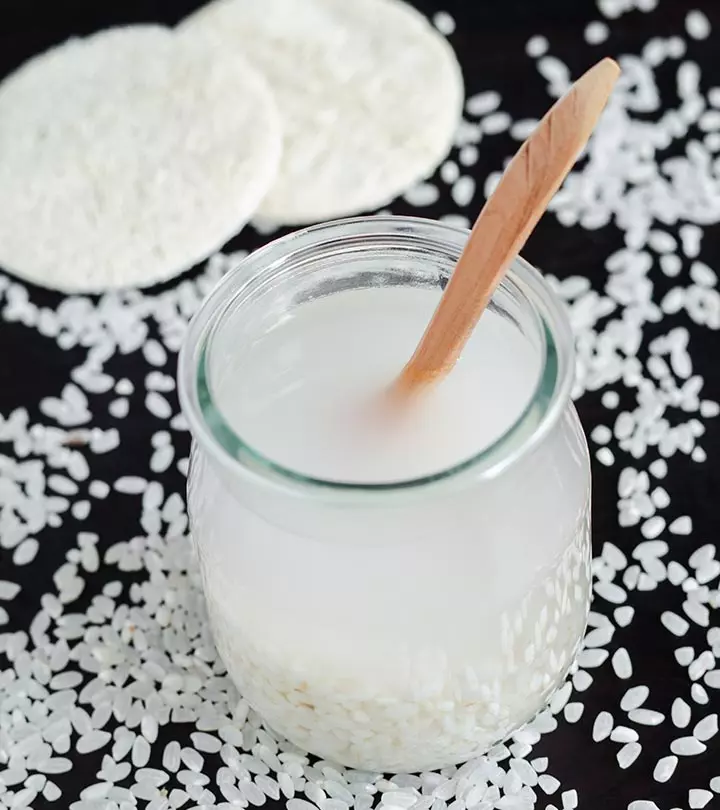
Community Experiences
Join the conversation and become a part of our empowering community! Share your stories, experiences, and insights to connect with other beauty, lifestyle, and health enthusiasts.